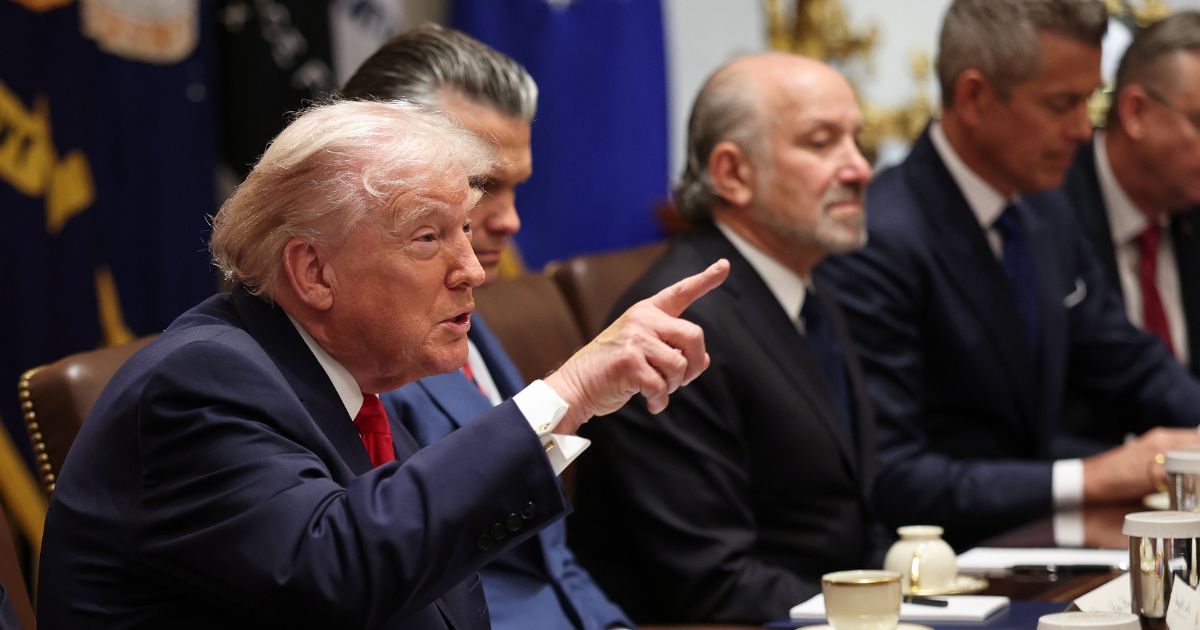Trump’s Foreign Policy Offends The Bureaucrat Paper Pushers
The article discusses the backlash within the U.S. foreign affairs bureaucracy against White House Special Envoy Steve Witkoff’s efforts to broker peace between Russia and Ukraine under the Trump management. Anonymous officials criticized the lack of extensive planning for a recent meeting between President Trump and Russian President Vladimir Putin, highlighting frustrations from sidelined foreign ministers and lower-level staffers. The piece argues that these career bureaucrats resent Trump’s hands-on approach because it diminishes their influence and exposes their inefficiency. Instead of solving problems, the article claims, the permanent foreign affairs bureaucracy primarily exists to maintain employment and preserve the status quo. The author defends Trump’s style of direct diplomacy, suggesting that the resulting inconvenience to entrenched bureaucrats leads them to leak negative stories aimed at undermining those who challenge their positions.
Low utility middlemen in the Trump administration are feeling left out again, and so they’re back to anonymously moaning to the news media. This time they’re ragging on White House Special Envoy Steve Witkoff and his peacemaking efforts with Russia and Ukraine.
Politico on Friday quoted several unnamed “U.S. and foreign officials and other people” in a piece critical of Witkoff. None of them are worth repeating, as is usually the case with anything anonymous, but the most telling part of the article, by the unfortunately named Felicia Schwartz, came 16 paragraphs in.
“The summit in Alaska was notable in part because of how little preparation went into it,” wrote Schwartz, referring to the recent bilateral meeting between President Trump and Russian President Vladimir Putin. “Typically ahead of such a high-profile meeting, foreign ministers and lower level staffers reach agreement on the choreography and outcomes ahead of time to make sure the meeting is productive and worthwhile.”
And here we get to the reason for an article headlined, “‘His inexperience shines through’: Steve Witkoff struggles to manage Russia as Trump peace envoy.” A few jilted “foreign ministers” and “lower level staffers” were sidelined, and it made their privates sore. This happens a lot in the Trump era. For better or worse (and it usually turns out for the better), the president takes an intense interest in the details of his job, a concept known outside of Washington as “working.” So, rather than relying on “ministers” and “lower level staffers” to execute his policies and efforts, he either does it himself or delegates it to someone with ready access to him.
The permanent foreign affairs bureaucracy hates that because it diminishes the influence of all its trifling bureaucrats, the “experts” who swear every single problem, no matter big or small, can only be addressed after they’ve had months and years to “study” them, write “papers,” and “consult” with one another. All of that is another way of saying, “not solving the problem.” In this case, not brokering a realistic peace deal in eastern Europe.
The permanent foreign affairs bureaucracy doesn’t exist to solve problems. It exists to keep otherwise worthless people employed earning important-sounding titles until the day they can finally retire from the government, only to then get a high-salary placement at an influential “think tank,” usually funded by weapons manufacturers. If their expertise isn’t consulted or considered even just a little, what are they for? Nothing, really. That’s why they run to places like Politico — to smear the person who has threatened their longtime scheme.
Think about how every time Trump wants to meet with a world leader his desire to do so is belittled by all the “expert” talking heads on cable news and treated by the major newspapers as a reckless self-indulgence. It’s not because there’s anything scandalous about two heads of state meeting face-to-face for the purpose of diplomacy. It’s because it renders all the “foreign ministers” and “lower level staffers” obsolete. If they don’t get to “reach agreement on the choreography and outcomes ahead of time,” they have no influence on the outcome.
True, sometimes the outcome isn’t what’s hoped for or the meeting results in a more complex understanding of certain international relations. That doesn’t make it a waste of time, and it doesn’t cheapen the presidency. It simply aggravates the middlemen who resent their diminished influence.
" Conservative News Daily does not always share or support the views and opinions expressed here; they are just those of the writer."

